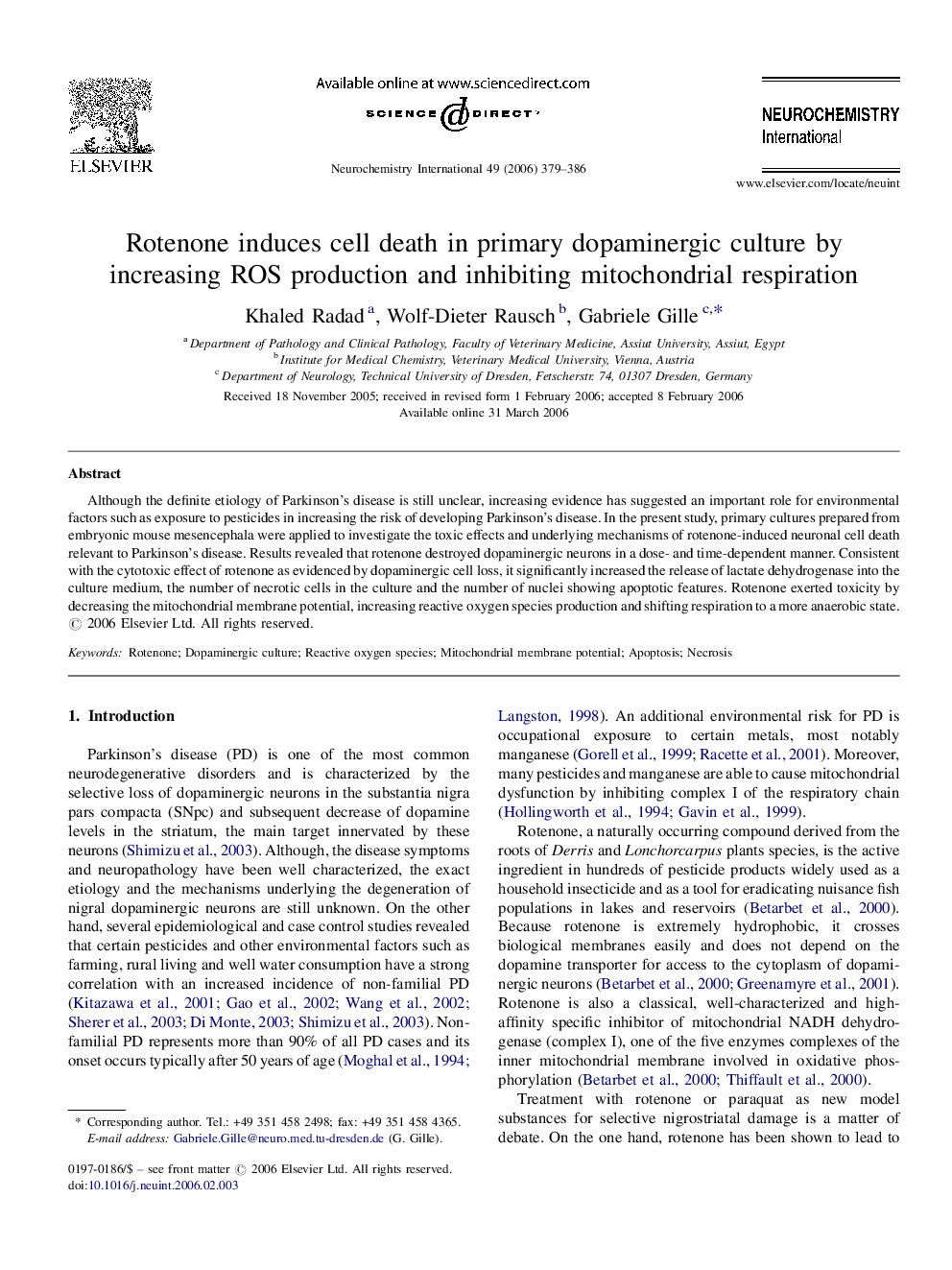| Article ID | Journal | Published Year | Pages | File Type |
|---|---|---|---|---|
| 2202134 | Neurochemistry International | 2006 | 8 Pages |
Although the definite etiology of Parkinson's disease is still unclear, increasing evidence has suggested an important role for environmental factors such as exposure to pesticides in increasing the risk of developing Parkinson's disease. In the present study, primary cultures prepared from embryonic mouse mesencephala were applied to investigate the toxic effects and underlying mechanisms of rotenone-induced neuronal cell death relevant to Parkinson's disease. Results revealed that rotenone destroyed dopaminergic neurons in a dose- and time-dependent manner. Consistent with the cytotoxic effect of rotenone as evidenced by dopaminergic cell loss, it significantly increased the release of lactate dehydrogenase into the culture medium, the number of necrotic cells in the culture and the number of nuclei showing apoptotic features. Rotenone exerted toxicity by decreasing the mitochondrial membrane potential, increasing reactive oxygen species production and shifting respiration to a more anaerobic state.
